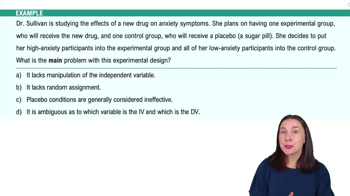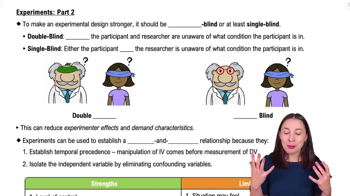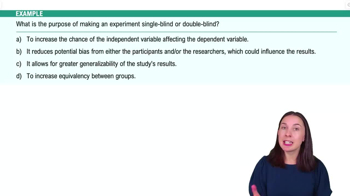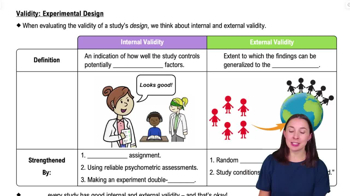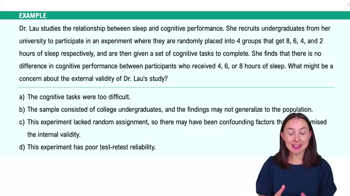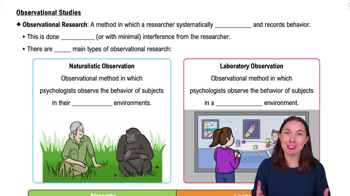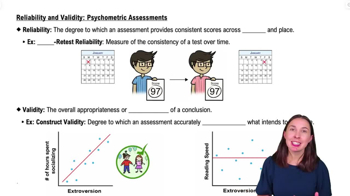Table of contents
- 1. Introduction to Psychology1h 43m
- 2. Psychology Research2h 20m
- 3. Biological Psychology2h 41m
- 4. Sensation and Perception28m
- 5. Consciousness and Sleep32m
- 6. Learning41m
- 7. Memory34m
- 8. Cognition37m
- 9. Emotion and Motivation35m
- 10. Developmental Psychology33m
- 11. Personality48m
- 12. Social Psychology41m
- 13. Stress and Health41m
- 14. Psychological Disorders44m
- 15. Treatment47m
2. Psychology Research
Intro to Research Methods
Struggling with Psychology?
Join thousands of students who trust us to help them ace their exams!Watch the first videoMultiple Choice
_____ is carried by recessive genes and inherited when a child inherits two recessive genes.
A
Fragile X syndrome
B
Down syndrome
C
Cystic fibrosis
D
Turner's syndrome
 Verified step by step guidance
Verified step by step guidance1
Begin by understanding the concept of recessive genes. Recessive genes require two copies (one from each parent) for the trait they carry to be expressed in the offspring.
Identify the conditions listed in the problem: Fragile X syndrome, Down syndrome, Cystic fibrosis, and Turner's syndrome.
Research each condition to determine which are caused by recessive genes. Fragile X syndrome and Down syndrome are not caused by recessive genes; they are linked to chromosomal abnormalities.
Understand that Turner's syndrome is a chromosomal disorder affecting females, where one of the X chromosomes is missing or partially missing, not related to recessive genes.
Recognize that Cystic fibrosis is a genetic disorder caused by mutations in the CFTR gene, which is inherited in an autosomal recessive manner, meaning it requires two recessive genes for the condition to manifest.

 1:46m
1:46mWatch next
Master Roadmap of the Lesson with a bite sized video explanation from Hannah Gordils
Start learningRelated Videos
Related Practice










